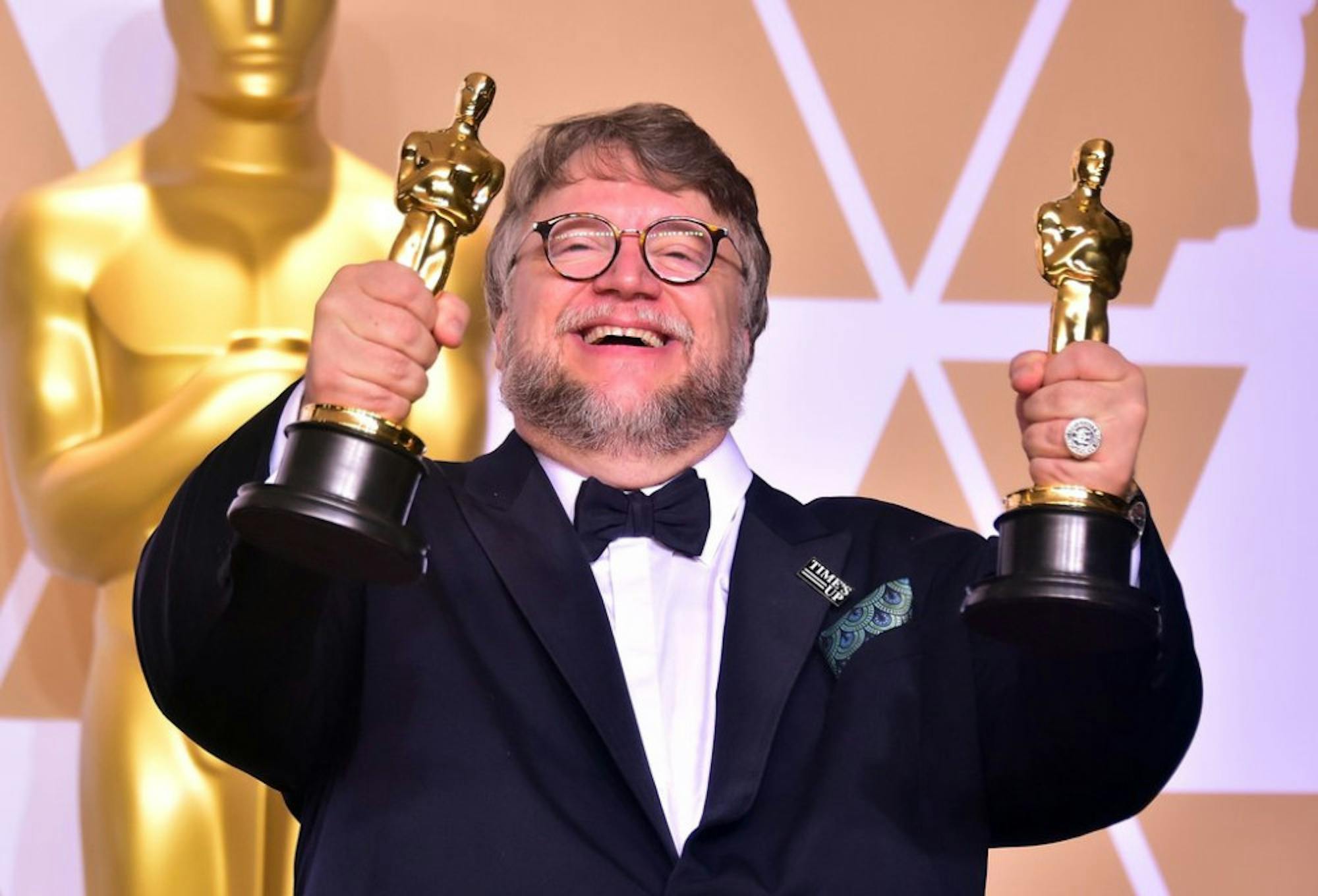Following 2017’s Best Picture mix-up and a year of public revelations about sexual assault in Hollywood, Sunday’s Oscars ceremony was under immense pressure. How could a night defined by excess and self-congratulation be serious, humble and celebratory all at once?
The result was a ceremony that attempted to place diversity at the forefront, with presenters and winners regularly making calls for greater inclusion of women, people of color and immigrants. “The Shape of Water” (2017), the nostalgic outcast love story from Mexican director Guillermo del Toro, took home Best Picture and secured del Toro’s first Oscar win as Best Director.
“I am an immigrant,” del Toro began his emotional acceptance speech. “I think that the greatest thing our art does and our industry does is to erase the lines in the sand. We should continue doing that when the world tells us to make them deeper.”
While del Toro was favored to win Best Director after taking home the title at numerous other award shows this year, the Best Picture category was no sure thing. Many believed the controversial “Three Billboards Outside Ebbing, Missouri” (2017) still had the Academy support to secure a win, while others speculated an upset from Jordan Peele’s “Get Out” (2017).
Yet in retrospect, “The Shape of Water” was the obvious choice for this year’s top prize: Magical and moving, serious without tragedy, del Toro’s film celebrates diversity, inclusion and acceptance in a way that feels vital, and is wholly more palatable for a wide range of Academy members than “Three Billboards” or “Get Out.”
The other big-hitters didn’t go home empty-handed, however. Comedy writer-turned-director Jordan Peele landed Best Original Screenplay for “Get Out,” making him the first black screenwriter to win the award. It’s unusual for a horror film to receive recognition for its writing, especially from a first-time filmmaker, but “Get Out” has broken down a number of assumptions the industry has about, well, everything.
Frances McDormand and Sam Rockwell both took home expected wins for their roles in “Three Billboards,” for Best Lead Actress and Supporting Actor, respectively, with McDormand delivering a rousing acceptance speech and calling on every woman nominated in the audience to stand.
“Look around, everybody. Look around, ladies and gentlemen, because we all have stories to tell and projects we need financed,” McDormand said. “Don’t talk to us about it at the parties tonight. Invite us into your office in a couple days or you can come to ours, whichever suits you best, and we’ll tell you all about them.”
For a ceremony so invested in the future of the industry, it did spend a whole lot of time romanticizing the past. In lieu of a song-and-dance opening, which would have been tone-deaf opposite host Jimmy Kimmel’s monologue about Harvey Weinstein and #MeToo, the night began with faux-grainy black-and-white footage of the audience as Jimmy Kimmel put on his best Transatlantic announcer voice. Following the retro trend, montages of classic films and previous nominees played before each major category was announced. This year marked the 90th installment of the awards, and honoring the show’s roots seemed to be an easy, inoffensive way of signaling the common ground uniting the Oscars audience after a year of division.
Sadly, the nostalgia seemed to fight with rather than complement the larger celebration of diversity. Speeches from winners of color were unfortunately juxtaposed by montage clips that featured actors in brownface, and Gary Oldman, who has been accused of physically abusing his ex-wife, took home the trophy for Best Actor in “The Darkest Hour” (2017) for his portrayal of Winston Churchill.
While critical darling “Lady Bird” (2017) from first-time feature director Greta Gerwig went home without a single trophy, dues were finally paid to veteran filmmakers who had yet to receive an Oscar in their careers. Cinematographer Roger Deakins won for “Blade Runner 2049” (2017) after 14 nominations, and 89-year-old screenwriter James Ivory took home Best Adapted Screenplay for “Call Me By Your Name” (2017), becoming the oldest person to win an Oscar ever.
Jimmy Kimmel did his best to balance an evening that whiplashed between celebratory and somber, but here’s hoping Tiffany Haddish and Maya Rudolph, the breakout duo of this year’s ceremony, get the hosting gig next.
Oscars 2018 celebrate diversity, but can't let go of the past

Director Guillermo del Toro poses in the press room with the Oscars for Best Picture and Best Director during the 90th Annual Academy Awards on March 4 in Hollywood, Calif.





